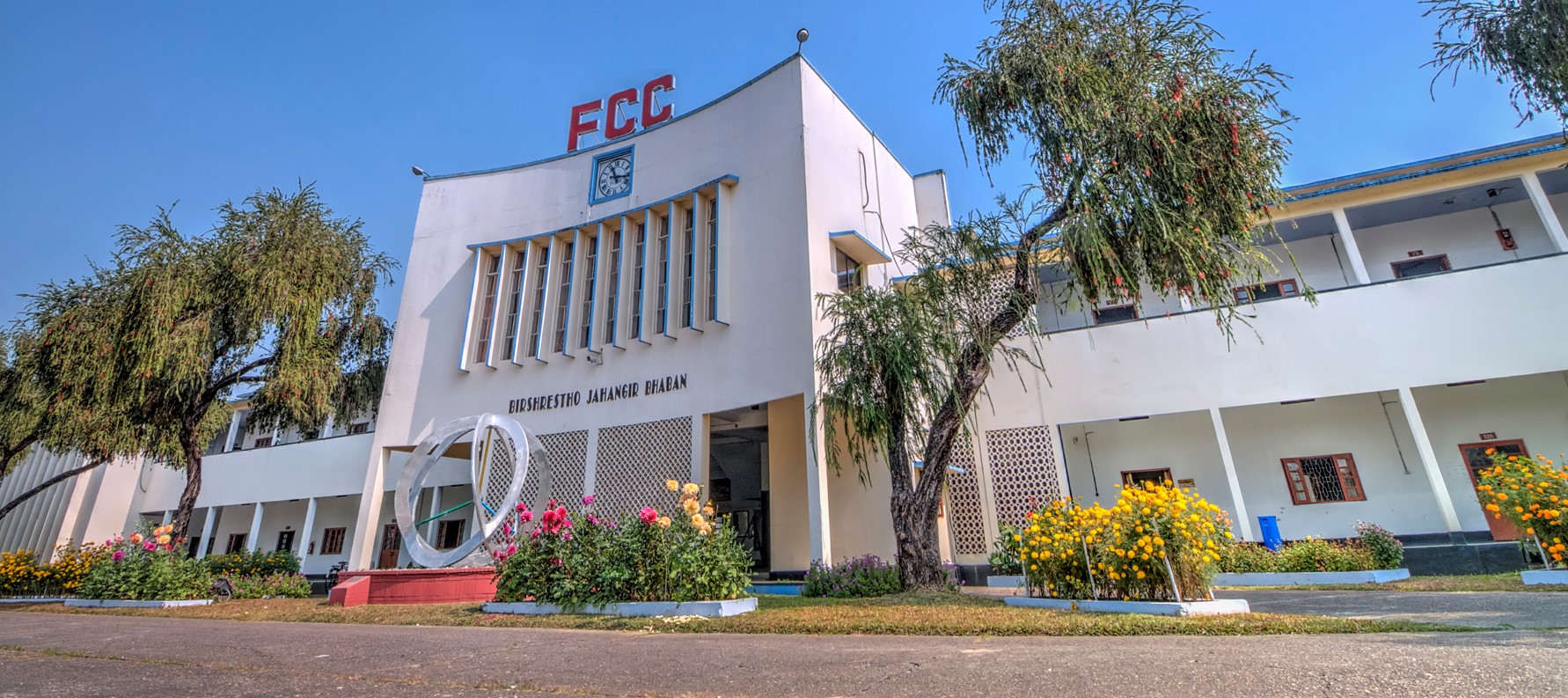About FCC
The Faujdarhat Cadet College began functioning at the Faujdarhat locality of Chittagong division on 28th April in 1958. The name Faujdarhat was influenced by the military history of bravery and vigor associated with the place from the Mughal era and FCC has continued the proud legacy by creating leaders in every sphere of the society in Bangladesh.
Originally known as the East Pakistan Cadet College, this institution was the first of its kind in the region that would later become Bangladesh. The need for such an establishment was urgently felt due to the intellectual vacuity following the partition of the Indian subcontinent in 1947. To meet the growing demand for a youthful generation of men with high morale, sound mental capacity, vision, physical strength and stamina, leadership traits, and capacity to contribute and drive the rapidly evolving administrative machinery of the civil and military societies, the then Provincial Government with the support of the Central Government of Pakistan undertook the Cadet College project in line with the concept for British Public Schools. With a sprawling 176-acre area, the Cadet College, which was about 11 kilometers north of the city of Chittagong and rested on the footsteps of surrounding hills and separated from the Bay of Bengal by the erstwhile Chittagong-Dhaka Trunk Road and the rail line, was the perfect secluded location for shaping the future of the young minds.
The Beginning
The authorities had decided to open the college as soon as the minimum requirement for classrooms and hostel accommodation was met. Understandably, the initial days were fraught with various challenges but the sincerity and perseverance of the staff and administration overcame all the difficulties.
The first cadets’ house and the dining hall when completed had a minimum of modern amenities. There was no running water and no electricity at the site. Water was sourced from a nearby factory and carried via tanker lorries. Generators were hired on loan from the Communications and Buildings department to provide electricity for limited use inside the campus. There were very few houses for the staff and the college employees and their families had to put up with many inconveniences. It was a period of stress and strain and at times the problems appeared to be insoluble. But there was never a lack of effort and commitment from any quarters.
The college became operational with classes VII and VIII comprising 59 cadets. On 28th April in 1958 Faujdarhat Cadet College was officially inaugurated by Brig Gen Qurban Ali on behalf of the General Officer Commanding.
The Philosophy
Staying close to its naming roots, Faujdarhat Cadet College is an exclusively residential institution that attaches optimum importance to regimental values. Its main objective is to prepare boys for the transition to young adulthood within an environment that promotes discipline, hard work, academic excellence, humility, and above all patriotism. Through the unyielding guidance of the teachers and instructors and with rigorous training, the cadets of this institution become equipped to face the world. To achieve this goal, cadets are imparted education specially designed to unearth inherent creativity, all-around knowledge, and confidence to command. They develop personality and character qualities that evoke compassion, an undying sense of loyalty, and an obligation to serve the country.
Indomitable Spirit
In the years following the War of Liberation in 1971, Faujdarhat Cadet College made a remarkable recovery from infrastructural and financial debacles as well as disruptions to the education calendar. Despite some worries over the sustainability of cadet colleges in the war-ravaged independent Bangladesh, Faujdarhat Cadet College flourished and triumphed for its proven track record in terms of academic results and for producing graduates with the potential to become guiding lights in the fields of defense, administration, education, health, engineering, and the public and private sectors. The untiring efforts of General M.A.G Osmany and a movement spearheaded by the Old Faujians Association were instrumental in that journey. Subsequently, the Faujdarhat Cadet College along with the three other cadet colleges of the time was placed under the jurisdiction of the Ministry of Defense.
Between 1958 and 1965 the pioneering staff, teachers, instructors, and cadets orchestrated the flowering of Faujdarhat Cadet College into a first-class residential educational institution which was often dubbed as the Eton of Bangladesh. The tradition and the foundation they had helped build has to this day remained a perpetual source of inspiration and ambition for the cadets who have pursued their tracks.




